You can feel the pull of a swimming pool on a Kentucky afternoon. Blue water, laughter, the hum of summer all around. But before you break out the floaties, there’s one important question: Do you have to have a fence around the pool?

You can feel the pull of a swimming pool on a Kentucky afternoon. Blue water, laughter, the hum of summer all around. But before you break out the floaties, there’s one important question: Do you have to have a fence around the pool?
You can feel the pull of a swimming pool on a Kentucky afternoon. Blue water, laughter, the hum of summer all around. But before you break out the floaties, there’s one important question: Do you have to have a fence around the pool?
Kentucky has clear pool fence regulations in place, designed to prioritize safety and prevent accidents.
Across the state, fence laws help families, friends, and neighbors stay protected.
At R&M Fence, we see the difference the right fence can make. This guide highlights important pool safety fence requirements that will bring you peace of mind.
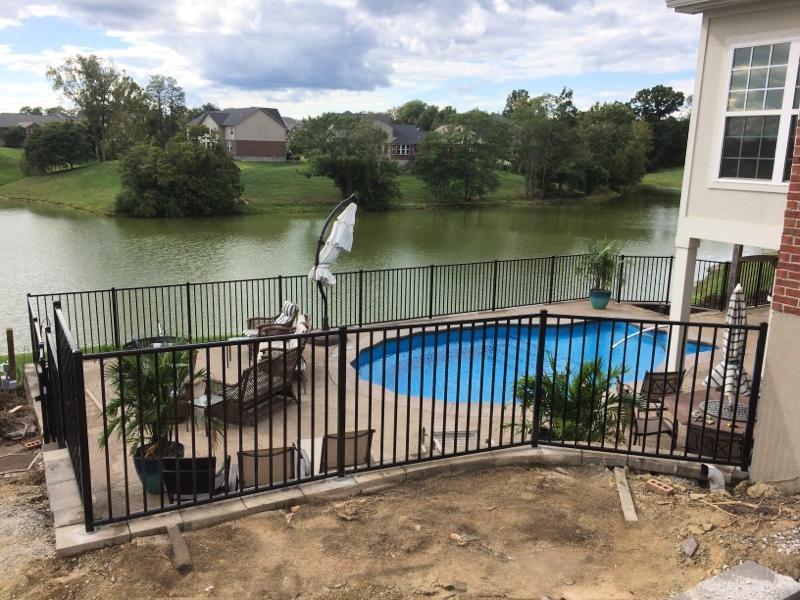
Owning a pool can change how you use your backyard.
Family visits become more frequent, and friends drop by.
But the truth is, every pool brings a serious responsibility: keeping the people you care about safe.
According to the CDC, drowning is a leading cause of accidental death for children aged 1 to 4. These incidents can happen fast and close to home. That’s why the state puts pool fence laws in place.
They’re designed to create a real barrier, not just a boundary.
If you want confidence as well as compliance, it’s important to work with experienced pool fence installers who understand Kentucky’s codes.
R&M Fence works with homeowners who want confidence as well as compliance. A sturdy, code-approved fence supports safety, keeps insurance coverage secure, and ensures better control over who can access your pool area.
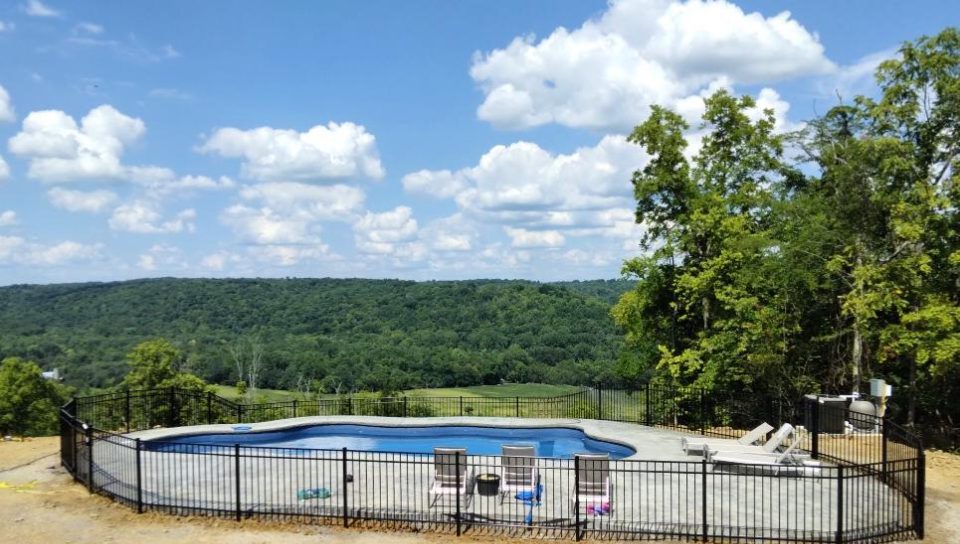
Kentucky follows parts of the International Swimming Pool and Spa Code (ISPSC). These rules set a clear standard, providing protection without confusion.
These statewide standards form the safety baseline across Kentucky’s residential pool safety fence requirements. Be sure to check local rules as well, some add extra specifications.
Local rules layer on top of state requirements, and they differ across Northern Kentucky. Here’s a snapshot:
Before ordering materials or installing, check with your local building department.
For help navigating city codes, coordinating inspections, and understanding local requirements, you can learn more about our team of local fence experts and how they can assist you every step of the way.
| Pool Type | Barrier Required? | Details |
| In-ground pools | Yes always | Must have a fence meeting state code: ≥48″ tall, self‑closing gate, 4″ max gaps |
| Above-ground pools | Yes, unless the ladder is removable/lockable | If walls are ≥4′ and the ladder is secured or removed, a separate fence may not be needed |
| Hot tubs & spas | Yes, or approved safety cover | Must have lockable covers or a barrier fence unless covered by an ASTM-approved cover |
Kentucky law treats fencing as real protection for your home, your finances, and your peace of mind.
Ignoring these laws invites serious consequences. City inspectors can impose fines that may run hundreds of dollars a day until you install a compliant barrier.
In some cases, municipalities have even ordered homeowners to drain or dismantle pools that lack proper fencing.
According to Rocket Lawyer, fines can climb into the thousands if violations aren’t corrected promptly. The ripple effect doesn’t stop there. Most homeowners’ insurance policies require a four‑foot locking fence.
Without it, insurers may deny claims or drop your coverage entirely.
Civil liability compounds the risk. If someone, be it a guest or a trespasser, gets hurt, the homeowner can face costly judgments. In legal terms, pools without barriers act as “attractive nuisances,” and Kentucky courts hold property owners accountable.
Every homeowner with a pool should know safety basics. Here are the basic pool fence requirements for homeowners in Kentucky:
| Requirement | Details |
| Minimum Height | The fence must stand at least 4 feet (48 inches) tall. |
| Gate | Self-closing and self-latching; latch must be 54 inches above ground. |
| Openings | Gaps should be less than 4 inches wide. |
| Climbable Objects | Keep benches, grills, and other items at least 3 feet from the fence. |
| Materials | Choose durable, weather-resistant materials that meet city rules. |
| Permits | Always check with your city or county for any needed permits. |
| Pool Covers | Only approved, lockable covers are allowed for hot tubs or spas. |
Staying on top of these pool fence requirements for homeowners means safer summers and fewer worries all season long.
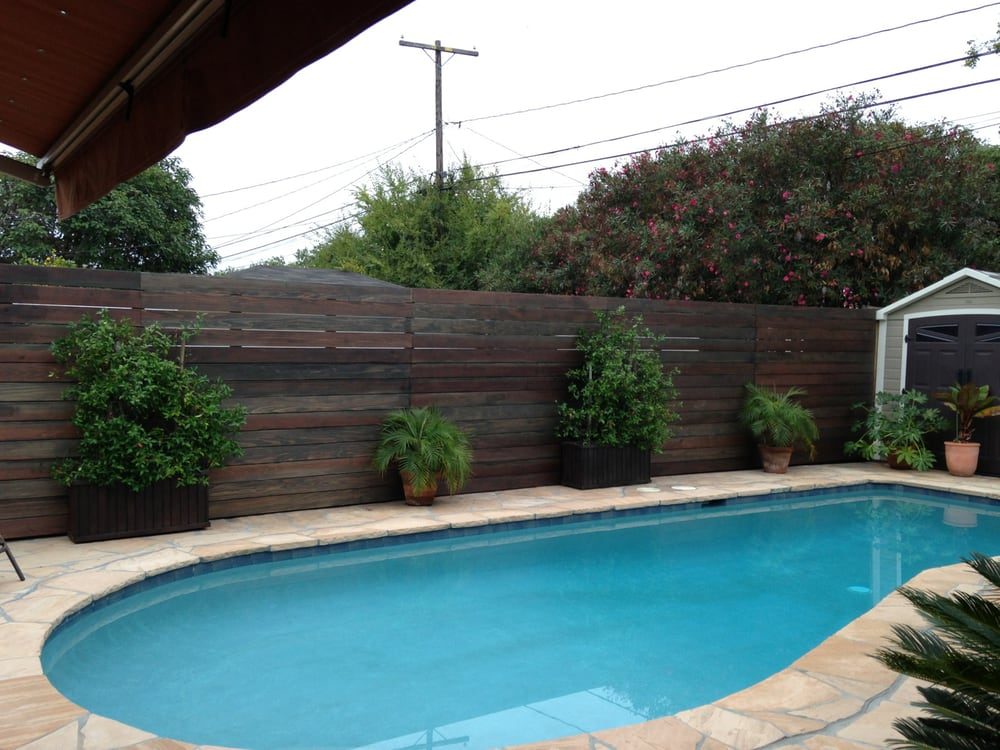
Kentucky weather can be unpredictable. Pools see it all: rain, heat waves, cold snaps, and everything in between. The right fence material makes a big difference.
R&M Fence installs every one of these options. We help you weigh the pros and cons for your specific space and budget. And if you want to handle the work yourself, we offer high-quality materials and tips so you can meet code and enjoy peace of mind.
Ready to explore your options? You can request a free pool fence estimate to get started on the right solution for your backyard.
R&M Fence helps Northern Kentucky homeowners meet pool safety codes with confidence. Our team measures your yard, recommends the right fence, and installs it to meet every regulation.
We stay up to date on local laws and inspectors’ expectations, so you never have to worry about compliance.
For DIY projects, we offer top-quality materials and practical advice.
Count on R&M Fence for straightforward answers, friendly service, and the peace of mind that comes with a job done right. Contact us directly at 859-485-9198.
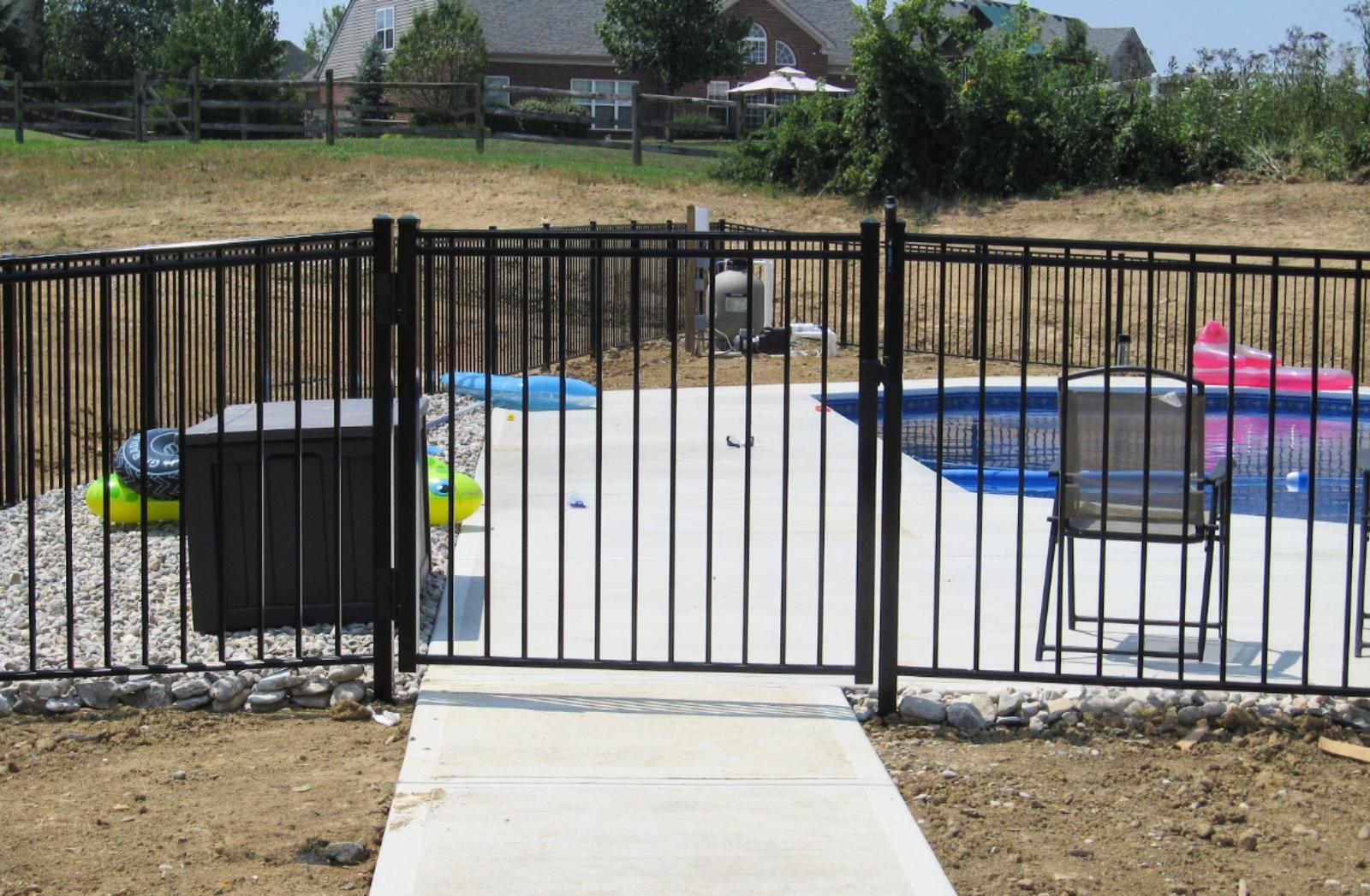
Safety and legal compliance go hand in hand for every Kentucky pool owner.
Pool fence compliance serves both legal and safety purposes, creating a secure environment for every swimmer.
R&M Fence knows what it takes to build a code-compliant fence that stands up to inspections and Kentucky weather. We’re here for advice, installation, or simply to answer your questions.
Ready to protect your backyard? Reach out to our pool fencing specialists for more information or a free estimate, and enjoy your pool with confidence.
Do you have to have a fence around a pool in Kentucky?
Yes, Kentucky pool fence regulations require a code-compliant barrier around most residential pools. This rule applies to both in-ground and many above-ground pools.
What are the pool fence laws in Kentucky for homeowners?
Pool fence laws in Kentucky and local residential pool fence rules set clear standards. Fences must meet minimum height requirements, have self-closing and self-latching gates, and prevent gaps that could allow a child to enter.
What is the minimum fence height for pools in Kentucky?
The fence height for pools must be at least 4 feet (48 inches) measured from the ground outside the fence, as outlined in state and city swimming pool barrier regulations.
Do above-ground pool fence laws apply in Kentucky?
Yes, above-ground pool fence laws apply if the pool walls are under 4 feet or if a ladder or entry is accessible. If the ladder can be locked or removed, some local codes may not require a separate fence.
What are the pool fence requirements for homeowners who want to stay compliant?
Pool fence requirements for homeowners include meeting state and local pool laws, using durable materials, and securing gates. Following swimming pool barrier regulations protects your home, finances, and peace of mind.
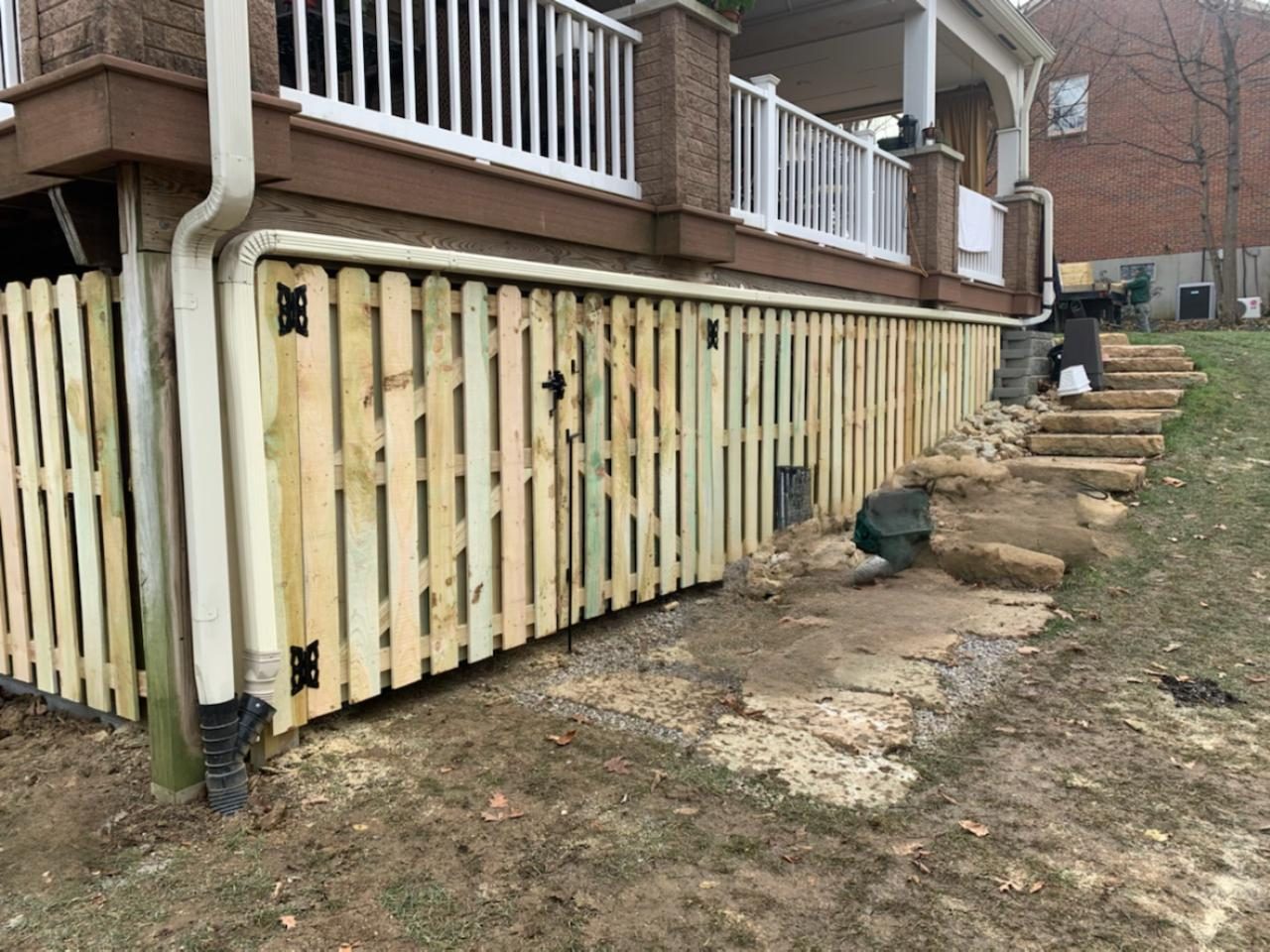
You step into the backyard and feel it right away: the space is open, and not in a good way. Sightlines stay wide, conversations carry, and relaxing starts to feel like performing.
Read More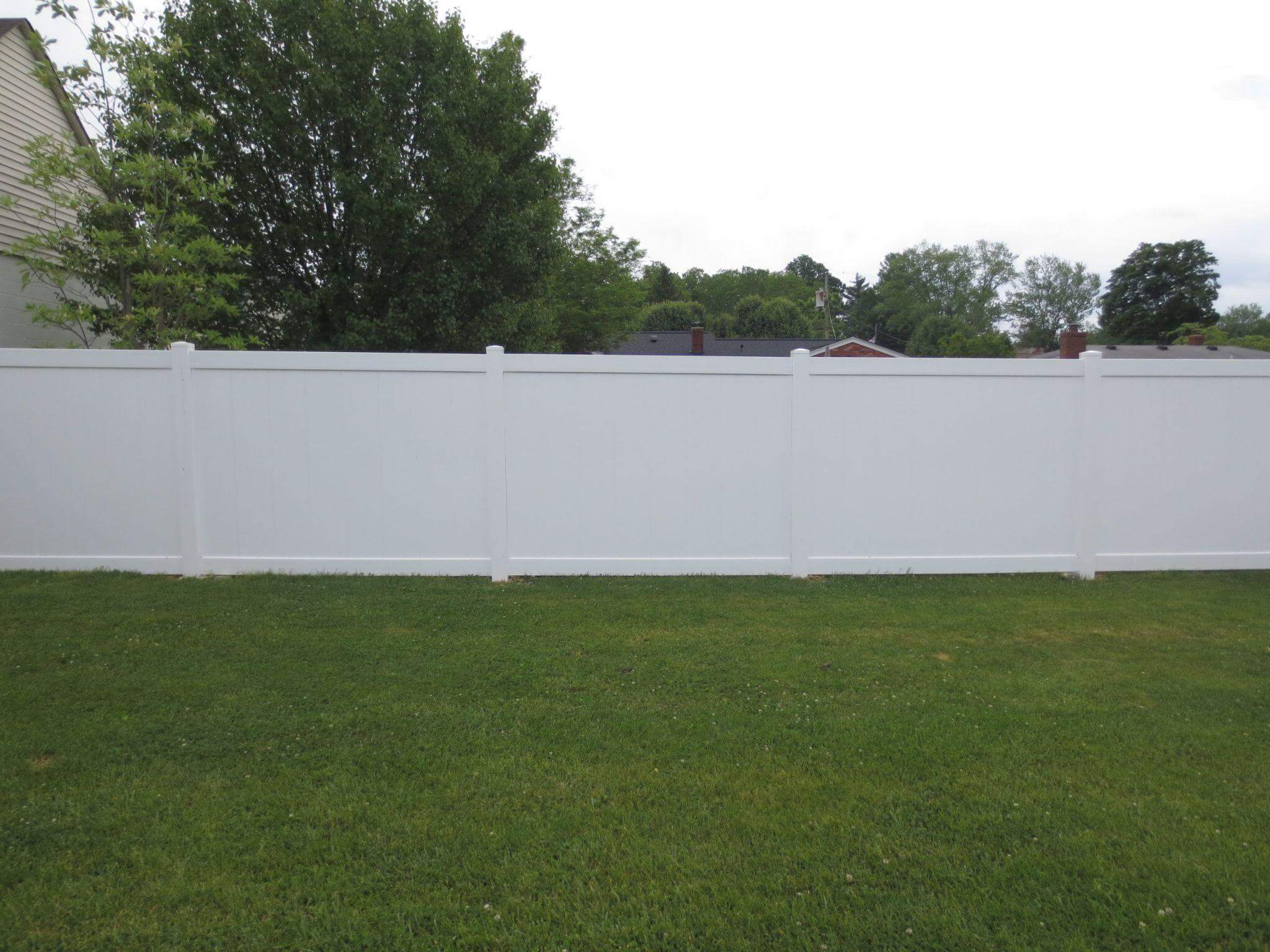
Fencing your backyard is a commitment to privacy, safety, and style. Our customers often ask, “How much does a backyard fence cost?” and, frankly, the answer depends on a blend of choices and circumstances.
Read More
Finding the ideal split rail fence company might seem easy at first, but small details often reveal big differences between contractors. Every property owner wants a fence that stays straight, stable, and attractive for years—not one leaning or crumbling within months.
Read More